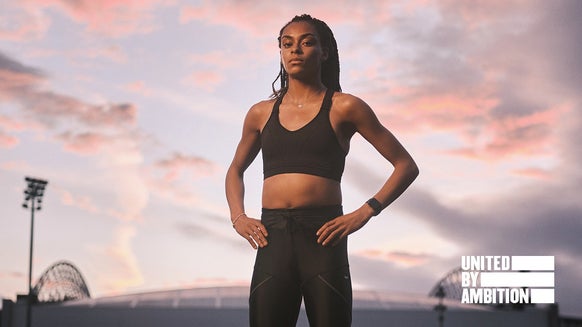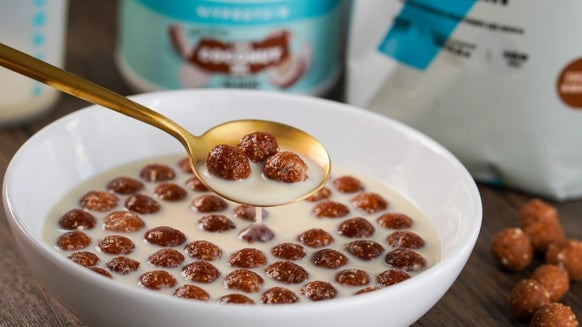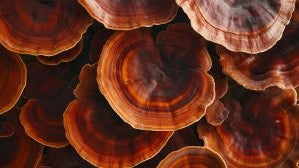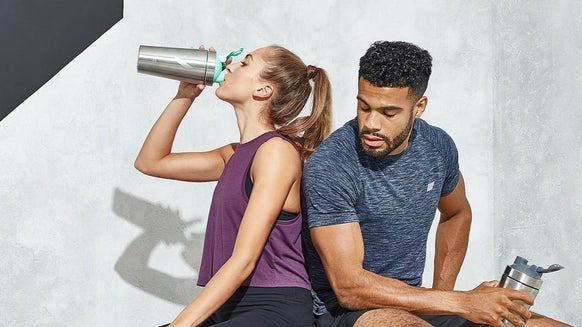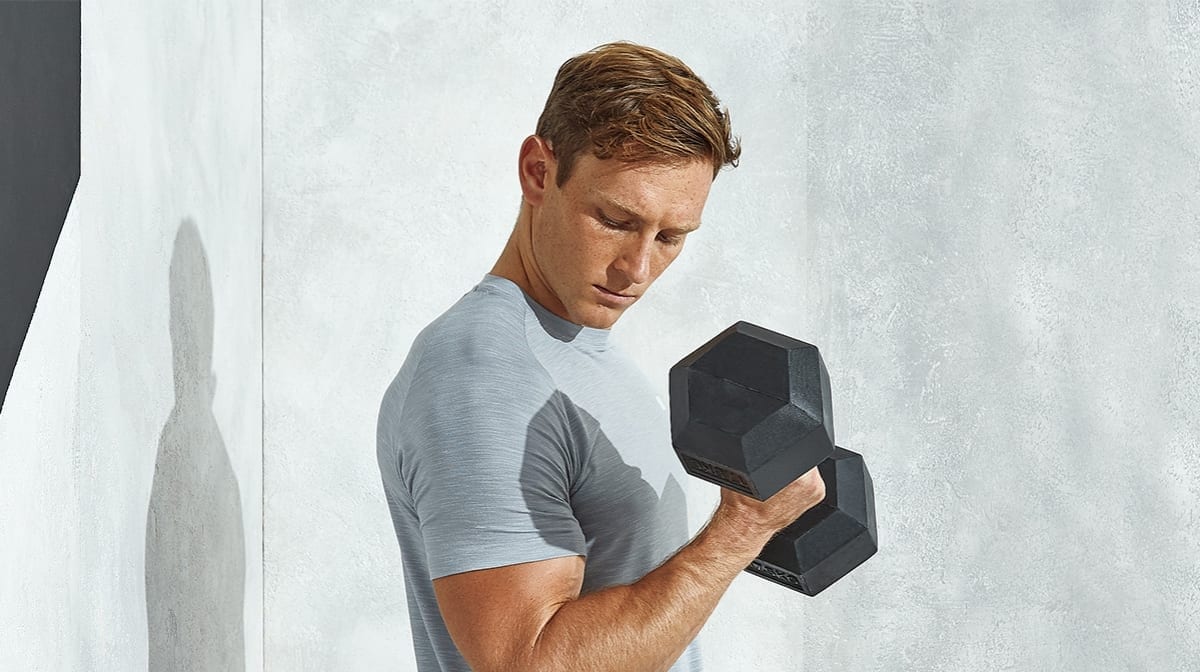
If you’ve decided to go vegan, you might have a few questions about whether you can still maintain the same fitness goals as before. How does this affect you as an athlete, or as a vegan bodybuilder? What are the pitfalls of a vegan diet (if any) and does a vegan bodybuilder need to do anything different to someone that eats animal products?
You'll find in this article:
Vegan bodybuilding nutrition
Protein for vegan bodybuilders
Dietary fats for vegan bodybuilders
Carbohydrates for vegan bodybuilders
Micro-nutrients for vegan bodybuilders
Workout nutrition for vegan bodybuilders
Cardio for vegan bodybuilders

Vegan bodybuilding nutrition
The rules for muscle building are still the same for a vegan bodybuilder, but there’s no doubt that you’ll have to put in a bit of extra effort when it comes to your nutrition.
Energy balance (how much you eat compared to how much you expend) is still the number one factor that determines whether someone will lose fat or put on weight. If someone is in a calorie deficit through diet or exercise they will lose weight. 4
Protein for vegan bodybuilders
Proteins are made up of amino acids which are the building blocks for all muscle growth. So, high amounts of protein are essential for vegan body bodybuilders. Some amino acids can’t be made by the body, so they need to be eaten daily.
A range of 2.0g to 2.4g of protein per kilogram of bodyweight is a safe range for most bodybuilders to be consuming, regardless of whether they are dieting for a show or trying to put on muscle.3,8
When it comes to protein, this is where the vegan bodybuilder needs to pay particular attention, as not all proteins are created equal. The athlete needs to make sure at least a few of their meals contain complete protein sources, meaning they must have all 9 essential amino acids present. When all 9 are present the body can make the remaining ones.8
For this reason, it might be practical for a vegan bodybuilder to supplement some of the meals to ensure the quality of the food and get the required total in. Supplements such as Vegan Protein Blend, Soy Protein Isolate or Pea Protein Isolate can be a convenient way to reach daily protein targets.
- Quinoa
- Buckwheat
- Soy
- Quorn
- Rice and beans
- Ezekiel bread
- Seitan
A vegan bodybuilder might also want to remember that some of these complete protein sources contain a high amount of carbohydrates. If you’re getting ready for a competition where low levels of body fat are the goal, you should look at the number of calories that you’re eating first. This is another reason why supplementing with protein powder might be useful as it generally means a lower amount of carbohydrate and calories.

Dietary fats for vegan bodybuilders
Similar to protein, not all fats that we eat are the same. For example, the body needs essential fatty acids. The word “essential” means that the body can’t produce it and so they need to come from your diet.
Omega 3 and omega 6 are considered essential fats. Omega 6 fats are fairly easy to get through the diet, but when it gets to the Omega 3’s it becomes a little harder— and even more so for vegans.
Bodybuilding is a grueling sport and by consuming Omega 3’s they can help muscle tissue repair and recover. 6
Dietary fat can be stored in the body, so even though the source might be healthy you need to watch how much you consume.
- Flax seeds
- Chia seeds
- Hemp seeds
- Leafy greens
- Seaweed
- Beans
Now there’s no doubt that these foods above are healthy and can have a positive impact on your results. However, what’s not spoken about enough — especially for vegan bodybuilders who need to get enough Omega 3 in their diet — is how much do they actually absorb?
These sources all go through a conversion process in the body to make them “bio-available”. This simply means that the body converts them into an active form which it can use — like a lock and key scenario.
The issue with this is that the conversion process is unfortunately very poor. So, although the amount looks good on your plate, the body doesn't actually get a lot of what it needs — even less so if you’re in a daily calorie deficit.
One very practical way around this is to supplement with Omega 3’s made from algae. This type of Omega 3 functions similar to fish oil, but had none of the ethical issues, and is used very well by the body.
Carbohydrates for vegan bodybuilders
Vegetables, starches and grains often make up a large component of a vegan diet. These foods all contain carbohydrates in them. Vegetables tend to have fewer carbohydrates than grains and starches.
Whilst it’s incorrect to say that all refined foods are unhealthy, it could be a good idea to eat the majority of carbohydrates from foods that are less refined for vegan bodybuilding.
Foods that are less refined are often higher in vitamins and minerals which can have a positive impact on performance. 7
Micro-nutrition for vegan bodybuilders
This is an area in which some vegans might fall short, especially when you exercise a lot, as in the case of vegan bodybuilding. Vegetables will provide an abundance of certain vitamins and minerals, but similar to the fatty acids, others are not converted as well in the body.
The main ones often missed are iron, zinc, and vitamin B12 as these are found in higher, more active amounts in animal products. That doesn’t mean that a vegan bodybuilder diet would be completely void of these nutrients, but the levels would be unlikely optimal.
Women, in particular, generally need higher amounts of iron and being vegan might further diminish the amounts they are getting. The easiest and most practical way to ensure that you are getting enough of these nutrients is to supplement with a vegan-friendly source. 1,2,5

Workout nutrition for vegan bodybuilders
Carbohydrates are responsible for performance whilst protein is needed for muscle growth. Both can be important around the workout, so timing might be useful to maximize results.
It’s recommended for muscle growth and recovery purposes that protein is eaten before and after training. An amount of 20g to 30g anywhere from 1 to 3 hours before training would be ideal (you could eat more but there would be no extra benefit when it comes to growth or recovery). A similar amount of protein should be eaten within two hours after a workout. 3
The recommendation for carbohydrates will change from a diet phase to a bulking phase. In a diet phase, there are fewer calories and carbohydrates compared to a bulking stage.
It is, however, a good idea to try and fuel your workout as best a possible so try and consume carbohydrates with your protein meal as well as after the workout for recovery.
How much will depend on your preference of diet (high carb or low carb) as well as whether you feel comfortable training on a full or empty stomach. 3
Cardio for vegan bodybuilders
Cardio can be the “icing on the cake” for a bodybuilder who is looking to lose any excess fat. Low intensity steady state cardio tends to be the preferred method of cardio for bodybuilding as it allows the athlete to recover from weight workouts, lose fat and doesn’t create any extra muscle soreness.
How much is needed is dependent on where the athletes are on their fat loss cycle. It can be as little as 30 minutes twice a week, to 60 minutes every day.
So, the big question is can a vegan athlete perform as well as those who eat meat and dairy? Can they put on muscle, become stronger and get stage lean?
Of course.
There’s no reason why a vegan bodybuilder can’t excel on stage. You will, however, need to work that little bit harder to make sure all the bases are covered nutritionally. Attention to detail is a must as bodybuilders are unique when it comes to training, diet and lifestyle and so a vegan athlete might need to take their dedication to nutrition to the next level.
Take home message
The same rules that apply to a meat-eating bodybuilder still apply to a vegan bodybuilder. Energy balance is key; protein makes the difference between muscle gained or lost. Hard training and adequate recovery are non-negotiable.
We all have limited time to spare, so to make life a little bit easier a smart supplement plan would be wise as it can eliminate any deficiencies as well as the guesswork around the diet.
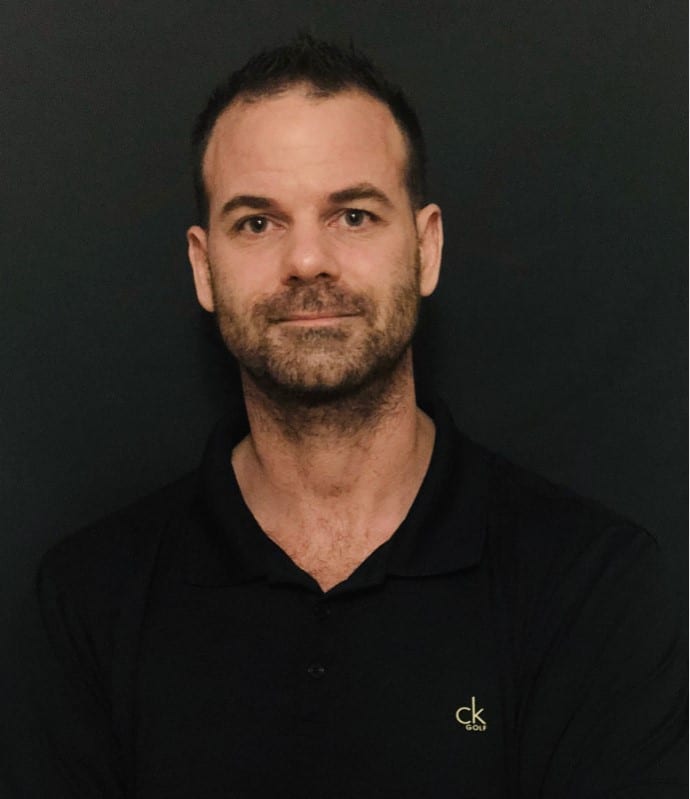
Grant is a sports nutritionist and certified strength coach. He has multiple postgraduate diplomas in nutrition and strength coaching as well as a Master’s degree in Sports and Exercise Nutrition, with a specific focus on protein.
Grant has worked in the fitness industry for well over a decade and has helped coach professional athletes and sports teams, as well as the average gym-goer looking to get in the best shape possible. He now spends most of his working time teaching fitness professionals and coaching people remotely.
He’s a big believer in practising what he preaches and has been involved in resistance training and martial arts for over 20 years. In his spare time, Grant enjoys being with his wife and daughter as well as the family dogs and catching up on the latest Netflix series.
Find out more about Grant’s experience here and about his personal training here.
- Brown, D. D. (2018). Nutritional Considerations for the Vegetarian and Vegan Dancer. Journal of Dance Medicine & Science: Official Publication of the International Association for Dance Medicine & Science, 22(1), 44–53. https://doi.org/10.12678/1089-313X.22.1.44
- Haider, L. M., Schwingshackl, L., Hoffmann, G., & Ekmekcioglu, C. (2018). The effect of vegetarian diets on iron status in adults: A systematic review and meta-analysis. Critical Reviews in Food Science and Nutrition, 58(8), 1359–1374. https://doi.org/10.1080/10408398.2016.1259210
- Helms, E. R., Aragon, A. A., & Fitschen, P. J. (2014). Evidence-based recommendations for natural bodybuilding contest preparation: nutrition and supplementation. Journal of the International Society of Sports Nutrition, 11, 20. https://doi.org/10.1186/1550-2783-11-20
- Hill, J. O., Wyatt, H. R., & Peters, J. C. (2013). The Importance of Energy Balance. European Endocrinology, 9(2), 111. https://doi.org/10.17925/EE.2013.09.02.111
- Rogerson, D. (2017). Vegan diets: practical advice for athletes and exercisers. Journal of the International Society of Sports Nutrition, 14. https://doi.org/10.1186/s12970-017-0192-9
- Swanson, D., Block, R., & Mousa, S. A. (2012). Omega-3 fatty acids EPA and DHA: health benefits throughout life. Advances in Nutrition (Bethesda, Md.), 3(1), 1–7. https://doi.org/10.3945/an.111.000893
- Troesch, B., Biesalski, H. K., Bos, R., Buskens, E., Calder, P. C., Saris, W. H. M., … Eggersdorfer, M. (2015). Increased Intake of Foods with High Nutrient Density Can Help to Break the Intergenerational Cycle of Malnutrition and Obesity. Nutrients, 7(7), 6016–6037. https://doi.org/10.3390/nu7075266
- Wu, G. (2016). Dietary protein intake and human health. Food & Function, 7(3), 1251–1265. https://doi.org/10.1039/c5fo01530h


